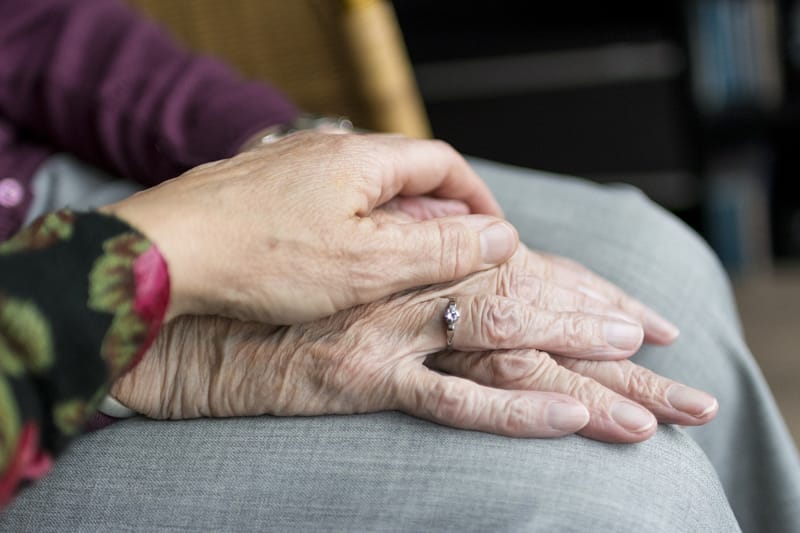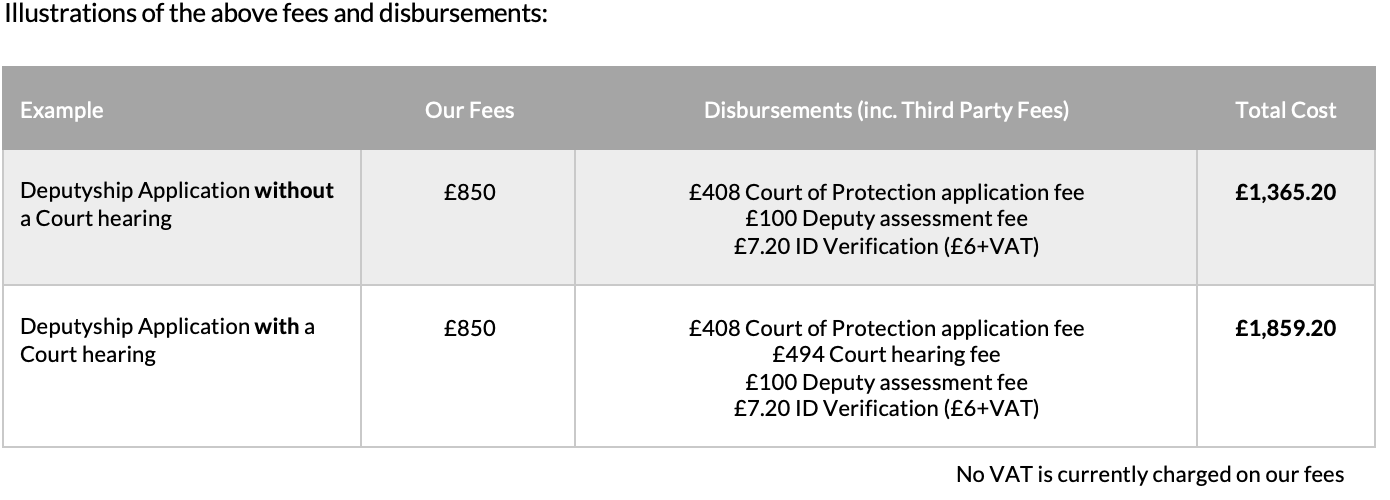Deputyship

What is a Deputyship?
When a person lacks mental capacity (the ability to make their own decisions and manage their own affairs) then their family or friends can apply to become their Deputy, i.e., the person authorised to manage their affairs and make decisions for them. The Court of Protection will appoint a Deputy, if they are satisfied a Deputy is required, based on the documents and evidence submitted in the application to the Court. They may appoint a Deputy to make decisions over a person’s Property and Affairs and/or their Personal Welfare (these types of Deputyship’s are rare).
What types of Deputyship are there?
Property and Affairs | Dealing with a person’s bills, collecting their pension, managing their money and making decisions regarding any property (including whether to sell the property or let it. |
Personal Welfare | Dealing with a person’s general health and welfare, including deciding where they live, liaising with their doctor and social services. Personal Welfare Deputies are rare and usually, permission is needed from the Court of Protection even before applying to be a Welfare Deputy. |
Who can become a Deputy?
A Deputy is usually a close friend or relative of the person who needs help making decisions. A Deputy can also be a professional. The Court of Protection will decide, based on the application documents submitted, whether the person applying will be appointed as Deputy, or whether a more suitable person exists. An appointment will normally be made when:
The person has more than £10,000 in cash after settling their debts;
There is a property to be sold or managed; and
The person has a level of income that the Court feels it justifies the appointment of a Deputy.
Responsibilities of a Deputy
The decisions a Deputy makes can have a big impact on the person’s life. In the role as a Deputy, they should:
Only make decisions in the person’s best interests;
Only make decisions which the Court say they can make; and
Apply a high standard of care when making decisions on behalf of the person.
The process
When an application for Deputyship is made, there are a series of formalities to be dealt with, usually over a period of 4-6 weeks. A number of forms have to be prepared and sent to the Court of Protection. The applicant must tell at least 3 people who know the person for who the application is being made, with them completing a witness statement that is also submitted to the Court. Once the application has been received, a letter is then issued by the Court of Protection stating when the application will be considered, which based on current timescales can take them 6-12 months to make a decision.
The Deputyship Order
Once the Court has considered the application, and if they are satisfied, they will make a First General Order appointing the Deputy and detailing what initial steps they must take. The Deputy will then have a number of duties to be discharged over the period of time specified in the Order. These will typically include some of the following:
- To open a Deputyship account at a local bank/building society;
- To prepare Deputyship accounts annually;
- To ensure that all income is collected, and all bills paid on time; and
- To take out a security bond. This is to cover any loss to the person’s estate should a Deputy fail in their duties.
Supervision
The Deputy is monitored by the Public Guardian who will hold them accountable for all actions and decisions. The Deputy has to complete an Annual Report to the Public Guardian. The report contains details of all the funds the Deputy has received and how they have been spent. The Deputy must also demonstrate how they have worked with others and how they have made decisions in the person’s best interests. The Deputy may also be required to meet with the Public Guardian’s official representative.
Court fees
The Court of Protection also charge fees for the following:
Application fee - £371;
Hearing fee - £494 (only if the Court decides a hearing is needed);
Annual supervision fees (£320 for general supervision or £35 for minimal supervision if deputies are managing less than £21,000); and
First assessment fee for a new deputy - £100.
Cost
The total cost for an application which does not require a hearing is £1,321, being our legal fees of £850 plus approximately £471 in Court fees. Any subsequent work, such as assisting and advising a Deputy will be charged at an hourly rate of £161. No VAT is currently charged on our fees.
Example Cost
